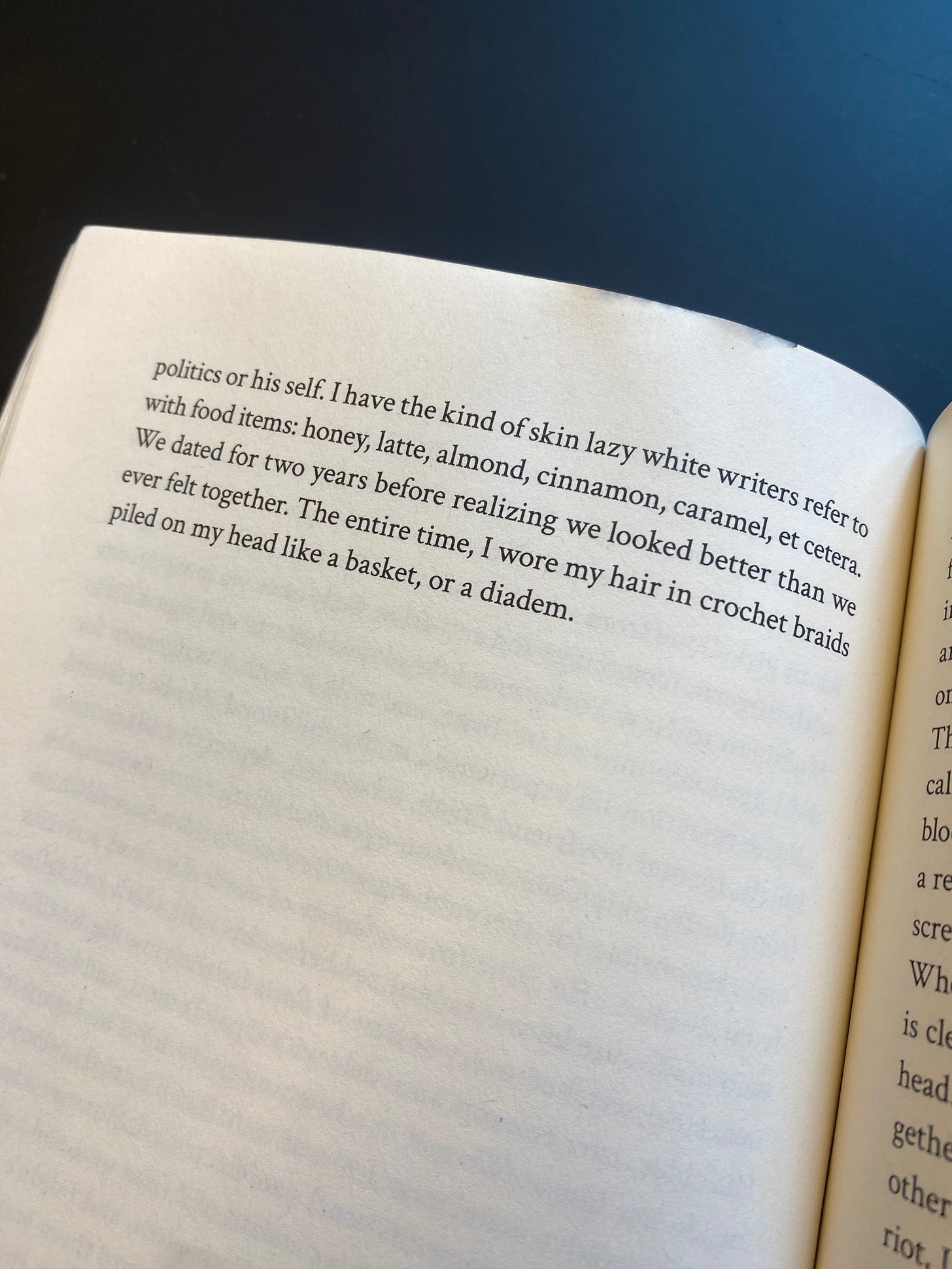If an Egyptian Cannot Speak English by Noor Naga
spoiler free-ish thoughts on texts recently consumed
Finishing this book was so satisfying and unsettling. It feels like it’s still crawling under my skin, slowly, deliberately, with a kind of quiet urgency.
I can’t remember another book from this past year that felt like such hard work to take in, with such a rewarding conclusion. If an Egyptian Cannot Speak English is a work of literary fiction published in 2022, and it follows an unnamed couple living in a post Arab Springs Cairo as they meet and fall in love alongside, or in spite of, or because of addiction, and cultural oppositions.
The book is written in three parts with the first two alternating narrations from characters only referred to as “the girl from America” (a twenty something woman of Egyptian heritage, who was born and raised in New York) and “the boy from Shobrakheit” (a twenty something man who grew up in a rural Egyptian town).
The title alone is so evocative, and makes you wonder: What happens when language is the line between belonging and estrangement, between being heard and being ignored? And Naga doesn’t answer that easily. She pulls you in, asks you to sit with discomfort, with the messiness of identity and self-representation. It’s not a book that gives you answers. It’s one that makes you question everything you thought you knew about home, language, love, and the ways people hold onto pieces of themselves they don’t fully understand.
The prose is fragmented in this beautiful, disorienting way, like snapshots from a dream—or perhaps from a memory that refuses to be fully recalled, only half-formed, flickering in and out of focus. It makes you question whether or not the narrator is a reliable one, but wonder if that even matters. And you’re there with them, drifting through thoughts that feel like half-sentences, thoughts that splinter and fold into one another. There’s an intimacy in it, a sense that you’re standing in the midst of this messy, tangled interior world of narrators who are just as unsure of themselves as the world around them.
The questions of belonging, of how to love and be loved in a world that keeps changing, they rise in you like a quiet swell.
Naga’s language is sharp, layered with meaning, but there’s a sort of poetry in it, too. It doesn’t rush, doesn’t explain itself too neatly. It asks you to pay attention to the silences, to the space between words, to the parts of the self we can never fully articulate. This is a book that lingers—not in a way that’s comforting, but in a way that leaves you questioning, wondering what’s been left unsaid, what’s been left behind.
And when you close it, you realize that it’s not just about the story—it’s about the spaces in between the story, the unspeakable things, the things we can’t always put into language. The things that feel like home, but don’t always belong to us.







Read this a while back and loved it, despite the totally dysfunctional relationship and unusual but amazing writing style, especially that 3rd (or 4th) part where she kinda broke the 4th wall